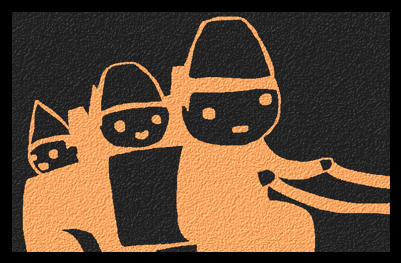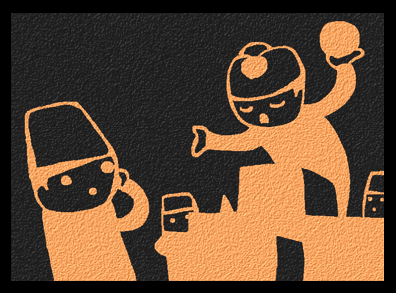Kochab’s Error

Kochab was a cartman who made his living ferrying travelers back and forth between Rome and Constantinople. Each trip took two weeks, but this was much faster than the road by foot, and passengers were eager to pay for his services.
Kochab found the life of a conveyor, while lucrative, rather mundane in and of itself. And so, even though he was an otherwise simple man, Kochab would endeavor to visit and listen to learned people, in both great cities, in order to spark his own imagination and spur contemplation, occupying his thoughts during his back-and-forth journeys.
One day, he attended a lesson by a famous astronomer in Constantinople named Al-Udhi.
“We imagine the Earth as being great in size, and the center of the universe,” said Al-Udhi. “When we look at the starry sky, the cosmos appears as a dome that is not so far away.”

“But these are mere appearances,” explained Al-Udhi. “Through careful observation and mathematical calculation, we have discovered that the earth is not the center of the universe; and the stars are very, very far away indeed; and the size of the earth is very tiny compared to the great size of the cosmos.”
This was startling to Kochab. Al-Udhi was right: Kochab did imagine the earth to be great in size, and the center of the universe. Before, the earth felt very, very large indeed to him. In the eye of his mind, the earth dominated the entirety of the cosmos, filling it up with bright blue and green; but now the artwork of his imagination was full of darkness, littered with stars, with a lonely, miniscule earth in one corner.
To Kochab, it felt as if the earth had shrunk.
So convincing to Kochab was this feeling that he fell into despair, cursing Al-Udhi for spreading this news. “Who now will need my services?” Kochab lamented. “The world is so small, and thus Rome and Constantinople so close together, that one might as well walk!”
–
A realization about the world, and how it is, or how it works, may prompt a significant paradigm shift in one’s conceptions. When such a jostling happens, it’s human propensity, upon being spurred to re-evaluate, to go “too far.” We might not be as silly as Kochab, but humans conclude non-sequitur conclusions all the time, and especially when their worlds are rocked like Kochab’s.
Furthermore, if that “too far” conclusion is an absurdum, we’ll be extra-likely to reject the paradigm shift at the outset, even though that conclusion is “too far” (a non-sequitur), and that paradigm shift is worth adopting!
In subsequent posts, I’ll talk about difficult conclusions we get “for free” from benign premises. Difficult conclusions often “rock worlds” and prompt non-sequitur absurdums. I’ll be referring to Kochab’s Error in those upcoming posts and linking back here. Keep an eye out!
Follow-up: Wars of the Absurdums












Trackbacks / Pingbacks